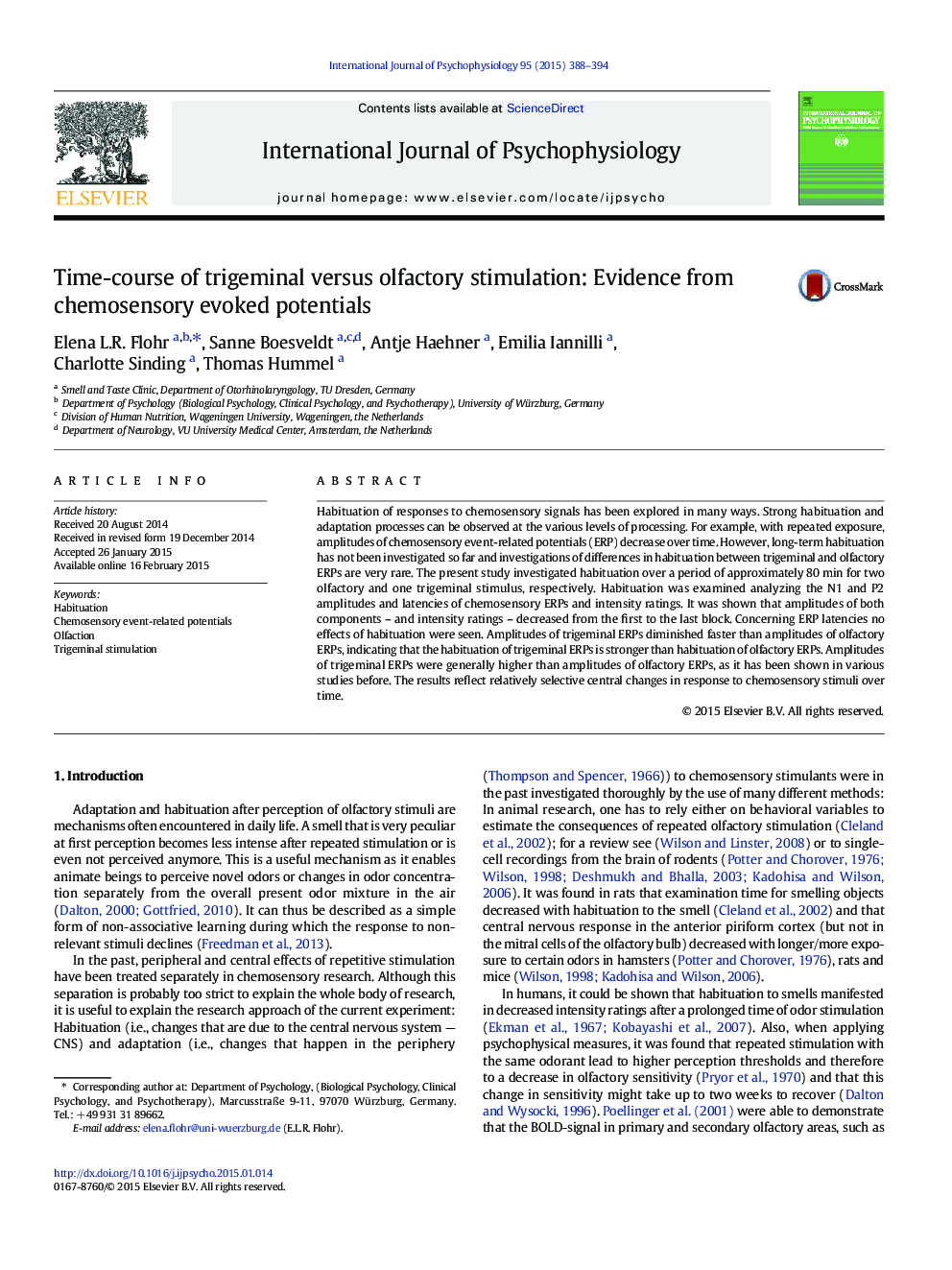| کد مقاله | کد نشریه | سال انتشار | مقاله انگلیسی | نسخه تمام متن |
|---|---|---|---|---|
| 7295522 | 1474409 | 2015 | 7 صفحه PDF | دانلود رایگان |
عنوان انگلیسی مقاله ISI
Time-course of trigeminal versus olfactory stimulation: Evidence from chemosensory evoked potentials
ترجمه فارسی عنوان
دوره زمانی تحریک تریگمینال و بوی بد دهان: شواهدی از پتانسیل های ناشی از کوموسنسوری است
دانلود مقاله + سفارش ترجمه
دانلود مقاله ISI انگلیسی
رایگان برای ایرانیان
کلمات کلیدی
موضوعات مرتبط
علوم زیستی و بیوفناوری
علم عصب شناسی
علوم اعصاب رفتاری
چکیده انگلیسی
Habituation of responses to chemosensory signals has been explored in many ways. Strong habituation and adaptation processes can be observed at the various levels of processing. For example, with repeated exposure, amplitudes of chemosensory event-related potentials (ERP) decrease over time. However, long-term habituation has not been investigated so far and investigations of differences in habituation between trigeminal and olfactory ERPs are very rare. The present study investigated habituation over a period of approximately 80Â min for two olfactory and one trigeminal stimulus, respectively. Habituation was examined analyzing the N1 and P2 amplitudes and latencies of chemosensory ERPs and intensity ratings. It was shown that amplitudes of both components - and intensity ratings - decreased from the first to the last block. Concerning ERP latencies no effects of habituation were seen. Amplitudes of trigeminal ERPs diminished faster than amplitudes of olfactory ERPs, indicating that the habituation of trigeminal ERPs is stronger than habituation of olfactory ERPs. Amplitudes of trigeminal ERPs were generally higher than amplitudes of olfactory ERPs, as it has been shown in various studies before. The results reflect relatively selective central changes in response to chemosensory stimuli over time.
ناشر
Database: Elsevier - ScienceDirect (ساینس دایرکت)
Journal: International Journal of Psychophysiology - Volume 95, Issue 3, March 2015, Pages 388-394
Journal: International Journal of Psychophysiology - Volume 95, Issue 3, March 2015, Pages 388-394
نویسندگان
Elena L.R. Flohr, Sanne Boesveldt, Antje Haehner, Emilia Iannilli, Charlotte Sinding, Thomas Hummel,
